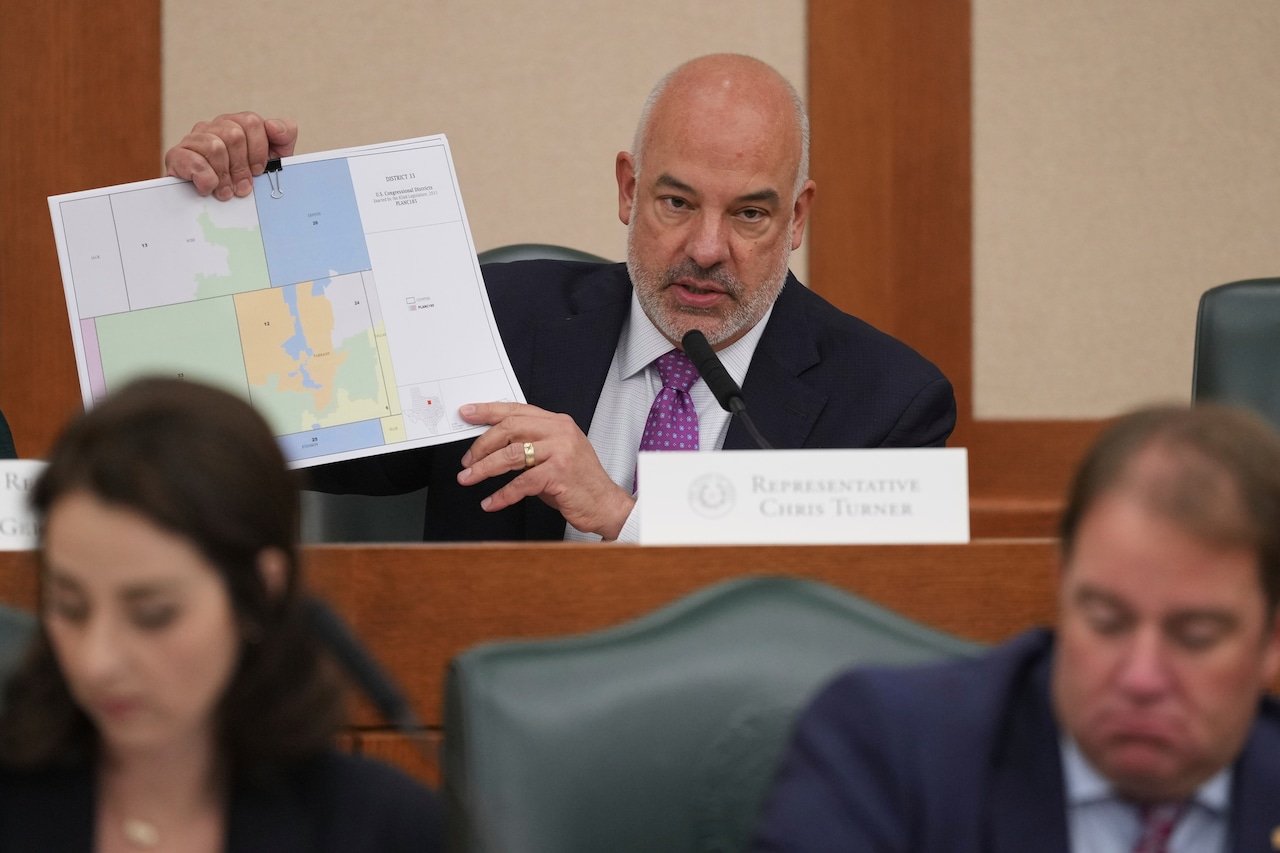Political science professor: GOP redistricting plans could backfire
A political science professor is warning Republicans that plans to redraw congressional maps to help them win more seats in Congress could backfire on them. Since July, Republican lawmakers in Texas have tried to redraw the state’s congressional districts before the 2026 midterm elections. The proposal, which was done at the behest of President Donald…
A political science professor is warning Republicans that plans to redraw congressional maps to help them win more seats in Congress could backfire on them.
Since July, Republican lawmakers in Texas have tried to redraw the state’s congressional districts before the 2026 midterm elections.
The proposal, which was done at the behest of President Donald Trump, according to the New York Times, would create five new seats that are favorable to Republican candidates.
Republicans in other states, such as Missouri, Ohio and Indiana, have suggested redrawing their maps to create more GOP-friendly seats.
Democrats, such as Gov. Gavin Newsom of California, have said Trump and the GOP are attempting to steal five congressional seats up for grabs for the midterm elections.
In a letter sent to the president on Monday, Newsom threatened that California would conduct its mid-decade districting efforts unless GOP efforts in other states back down, according to Politico.
In an article posted on The Conversation, Charlie Hunt, an associate professor of political science at Boise State University, argued the Republican efforts to redistrict Texas and other states could come back to haunt them in three ways.
The first is that Democrats, such as Newsom, could redistrict states such as California, New York, and Illinois to counter efforts made by GOP lawmakers.
The second of the three ways the redistricting could backfire on Republicans, according to Hunt, is that Republicans could spread their voters too thin across several districts.
By doing this, it creates districts that can flip towards Democrats in the future, according to Hunt.
This concept is known as “dummy-mandering”, which is the opposite of the concept of gerrymandering. Gerrymandering is the political manipulation of district lines to give an advantage to a party, group, or socio-economic class.
“When parties gerrymander districts, they don’t usually try to make them all as lopsided as possible for their own side,” Hunt explained.
“Instead, they try to make as many districts as possible that they are likely to win,” Hunt wrote. “They do this by spreading groups of supportive voters across several districts so they can help the party win more of these districts.”
The third reason why Hunt thinks the GOP’s efforts to gerrymander may hurt them instead of help them is that there are fewer and fewer competitive congressional seats that can be gerrymandered.
He noted that states controlled by Democrats and Republicans have already undertaken heavy gerrymandering efforts following the 2010 and 2020 censuses.
“Republicans have generally been more adept at the process, particularly in maximizing their seat shares in relatively competitive states such as Wisconsin and North Carolina that they happen to control.” Hunt wrote. “But Democrats have also been successful in states such as Maryland, where only one Republican serves out of nine seats, despite the party winning 35% of the presidential vote in 2024. In Massachusetts, where Democrats hold all eight seats, Republicans won 37% of the presidential vote in 2024.”
Still, Hunt warned that the redistricting fight in Texas could prompt states to redraw their maps—not because they are required to do so every decade, but because they dislike their chances in the upcoming election.
“Regardless of how far either party is willing to go, today’s clash over Texas redistricting represents largely uncharted territory,” Hunt wrote.
If you purchase a product or register for an account through a link on our site, we may receive compensation. By using this site, you consent to our User Agreement and agree that your clicks, interactions, and personal information may be collected, recorded, and/or stored by us and social media and other third-party partners in accordance with our Privacy Policy.






